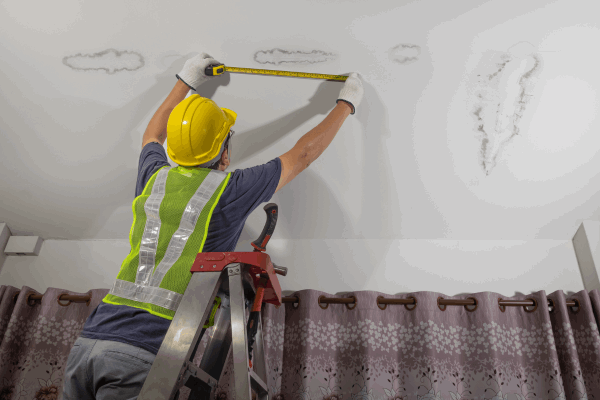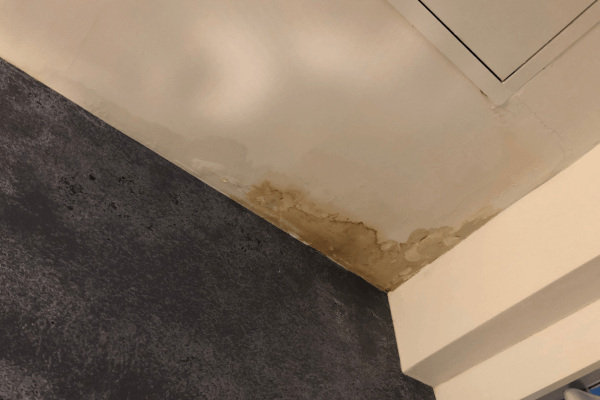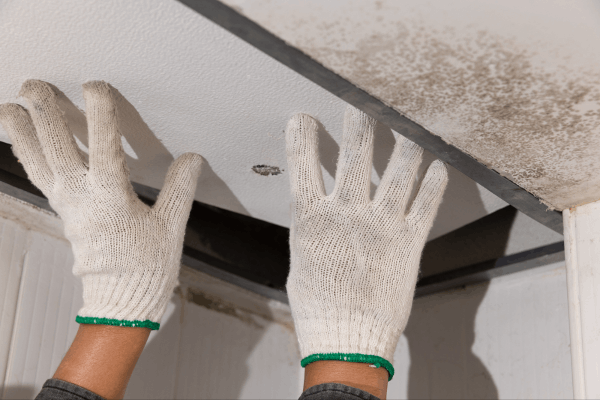5 Signs You Need a New Roof: How to Check Your Roof From Inside Your Home
By Werner-Admin
Sometimes, it's hard to tell if you need a new roof until it's too late. You may not know the severity of the situation until your roof starts leaking or serious damage occurs. This can cost you way more money in the long run.
The first place you may see signs you need a new roof is where you spend the most time-inside your home.
Here are a few telltale signs you may see inside that it may be time to consider upgrading your roof.
5 Warning Signs You Need a New Roof
Is your roof starting to show signs of wear and tear? Here are five warning signs you need a new roof, or at least a repair.
1. The Roof Deck Is Sagging
The underlying structure of your roof is called the "roof deck." The roof deck plays a crucial role in keeping your roof stable. If you have a vaulted ceiling or can access your attic, look here for signs of sagging.
A sagging roof deck is a strong indicator of water damage. This could result from leaks, impact from a fallen tree branch, or other external forces.
Over time, this can weaken the structure and compromise the integrity of your roof entirely. Fixing this as soon as possible can prevent costly structural repairs down the line.
2. You Notice Signs of Water Damage or Leaking
Water stains on your ceiling or walls are telltale signs that moisture is seeping through your roof.
You might notice yellow, brown, or even blackish discolorations in areas where water has been absorbed into your drywall. In more severe cases, you may see active drips or leaks during rainstorms.
If this is happening to you, don't immediately panic. Minor leaks can usually be easily repaired.
However, extensive water damage often means a new roof is necessary to protect your home's interior from ongoing water intrusion and prevent mold growth.

3. Outside Light Is Showing Through the Roof
As you can imagine, it's a bad sign if you can see outside light coming into your home and it's not through a window or skylight. It's a sign that your roof has holes or gaps, leaving it vulnerable.
Gaps in roof boards can allow rain, snow, and even pests into your home, leading to damage that can spread quickly. Even a tiny gap can worsen over time, and a roof replacement is usually the best way to restore complete protection and insulation to your home.
4. There Is Mold or Mildew Growth Around Roof Penetrations
If you notice mold or mildew growing in your attic or near vents, pipes, or other roof penetrations, this can be a sign of poor ventilation or water leaks.
Mold thrives in moist environments, so even the smallest small leak can go undetected and create ideal conditions for growth.
Mold is not only a structural threat but can also pose health risks to you and your family, so it isn't something to take lightly.

5. You've Seen a Spike in Your Energy Bills
A sudden increase in energy bills can indicate poor insulation or a leaking roof. This results in warm air escaping during winter and cold air seeping out in the summer.
When this happens, it forces your HVAC system to work harder to maintain a comfortable temperature in your home, which costs more money.
Check your attic for signs of drafty spots or poor insulation, indicating a compromised roof. Replacing your roof can help seal up these leaks, keeping your home more energy-efficient and reducing your monthly utility costs.
Don't Wait on Roof Repairs: Contact Werner Roofing for a Free Inspection Today
Replacing an old, damaged roof can eliminate this issue and prevent mold growth by creating a better-sealed and ventilated space.
Now that you know the warning signs you need a new roof, you can keep your home in the best shape possible.
If you notice any of the above issues, addressing them early can help you avoid more extensive-and costly-repairs in the future.
At Werner Roofing, we're here to help with all your roofing needs. Our team of experienced roofing professionals can assess your roof's condition and provide a free, no-obligation estimate to ensure your home stays safe, dry, and energy-efficient.
Call Werner Roofing today at (616) 844-5382, or visit us online to schedule your inspection. Let us help you protect your biggest investment-your home.